Key findings
The latest Royal Children’s Hospital National Child Health Poll surveyed Victorian parents, asking a series of questions about anxiety.
Key findings include:
- Parents report 50% of children aged three years and over are experiencing problems with anxiety, with 36% experiencing ‘somewhat of’ a problem and 14% experiencing a ‘big’ problem.
- One in five children (19%) are anxious about attending school or kindergarten.
- On average, parents recognise only half of the common signs and symptoms of mental health problems in children.
- Only one in three parents are confident they could tell the difference between ‘normal’ worries in children and anxiety that might need professional help.
The Royal Children’s Hospital has produced resources to help parents and caregivers recognise and support children’s anxiety. Learn more at rch.org.au/anxiety
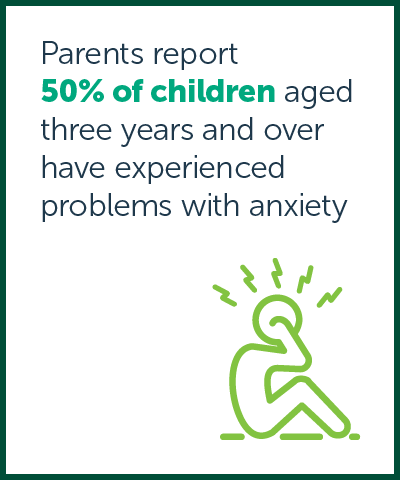
Poll report
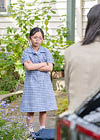
This report shows that anxiety is a common problem in Victorian children, with half of all children at least moderately affected during July and August 2022.
Download report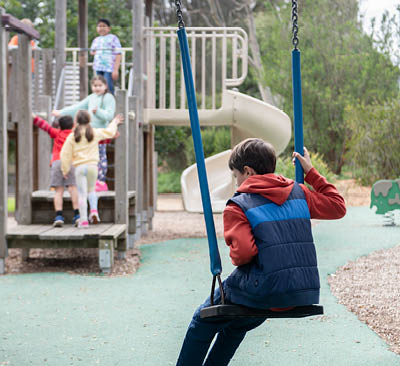
Poll questions

The poll surveyed 1,285 Victorian parents, providing data on 2,161 children aged between three and 17 years.
Download questions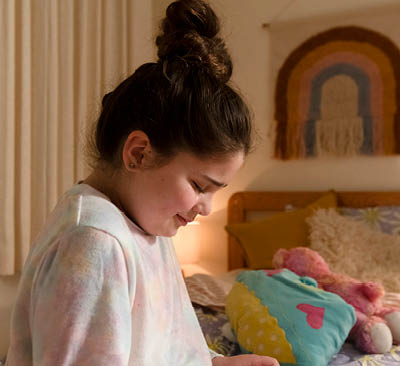
In the news
The news coverage generated by this report resulted in hundreds of media mentions, with a potential reach of more than six million people. Examples of the press coverage:
- Nine News, ‘Half of Victorian children are experiencing anxiety issue, study finds’, 6 October 2022
- Herald Sun, ‘Metal health: Victorian children suffering from anxiety’, 6 October 2022
- 3AW, ‘The staggering number of Victorian kids experiencing problems with anxiety’, 6 October 2022
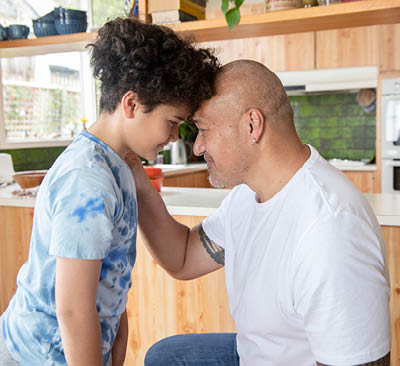
Information for parents
Tips for parents
- Encourage your child to talk about their feelings and let you know when they get overwhelmed. It might help to explain these feelings are common – we all feel worried or scared sometimes.
- If there is a particular situation your child finds challenging, support them to gradually do the thing that makes them anxious. For example, if going to a crowded shopping centre makes them anxious, start with short trips to the local shops, building up to visiting a shopping centre in a quiet period.
- Make a practical plan together for coping with anxious feelings in the future, such as breathing techniques or reassuring phrases to focus on.
- Take time out to have fun together and take the focus off feelings of anxiety.
- Help your child to have healthy routines that include enough good-quality sleep, regular outdoor exercise, eating well and avoiding excessive screen time.
- Prioritise your child attending school. Attending and participating in school will help your child develop important skills and knowledge to help them learn, as well as building their social and emotional skills.
Resources
- RCH Kids Health Info factsheet – Anxiety – primary school aged children
- RCH – Signs of anxiety video and infographic
- Beyond Blue: Healthy families: Anxiety (6–12 years)
- Raising Children’s Network: Anxiety and fears in children (0–8 years)
- Raising Children’s Network: Generalised anxiety in children (3–8 years)
- Raising Children’s Network: Anxiety: the stepladder approach (3–8 years)
- Healthdirect: Anxiety in children
Online programs and support for anxiety
- The Brave Program: An interactive online program aimed at 8–12 year olds to help them overcome worries and learn coping strategies.
- Fear-Less Triple P Online Course: A toolkit to help your child manage anxiety and become more emotionally resilient.
- Cool Kids Program: An interactive online program aimed at 7–12 year olds to help them overcome anxiety and build confidence.
- The Beyond Blue Child Mental Health Checklist: A general tool to check your child’s symptoms and whether to get professional help.
- Kids Help Line: A free, confidential 24/7 online and phone counselling service for young people.
- Smiling Mind Kids Care Packages: A series of calming activities and audio recordings for children based on mindfulness meditation.
- Mental health and wellbeing toolkit: Advice to support student mental health and wellbeing, aimed at students, parents and caregivers, and schools.
- Parentline: A free phone counselling service where you can discuss parenting challenges and get support.



